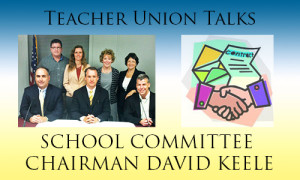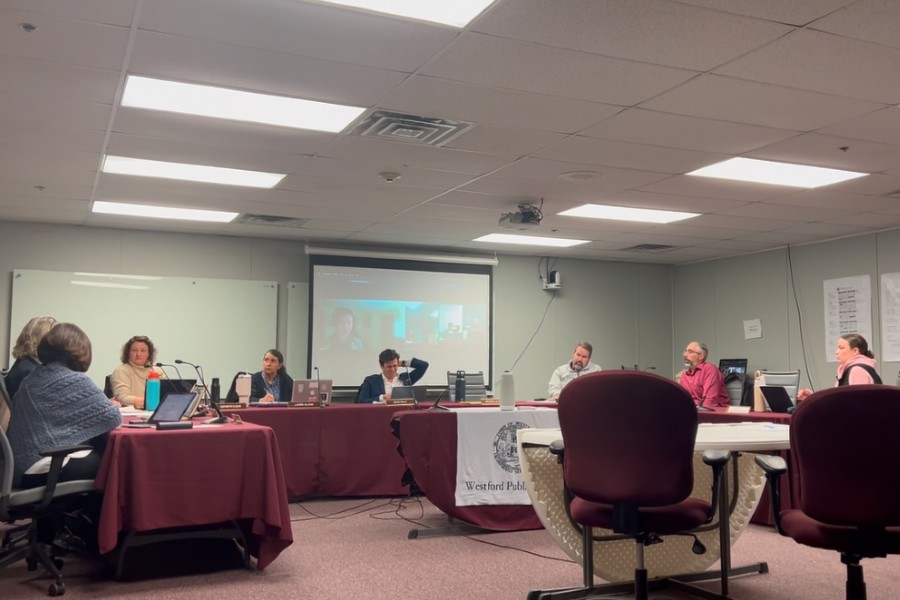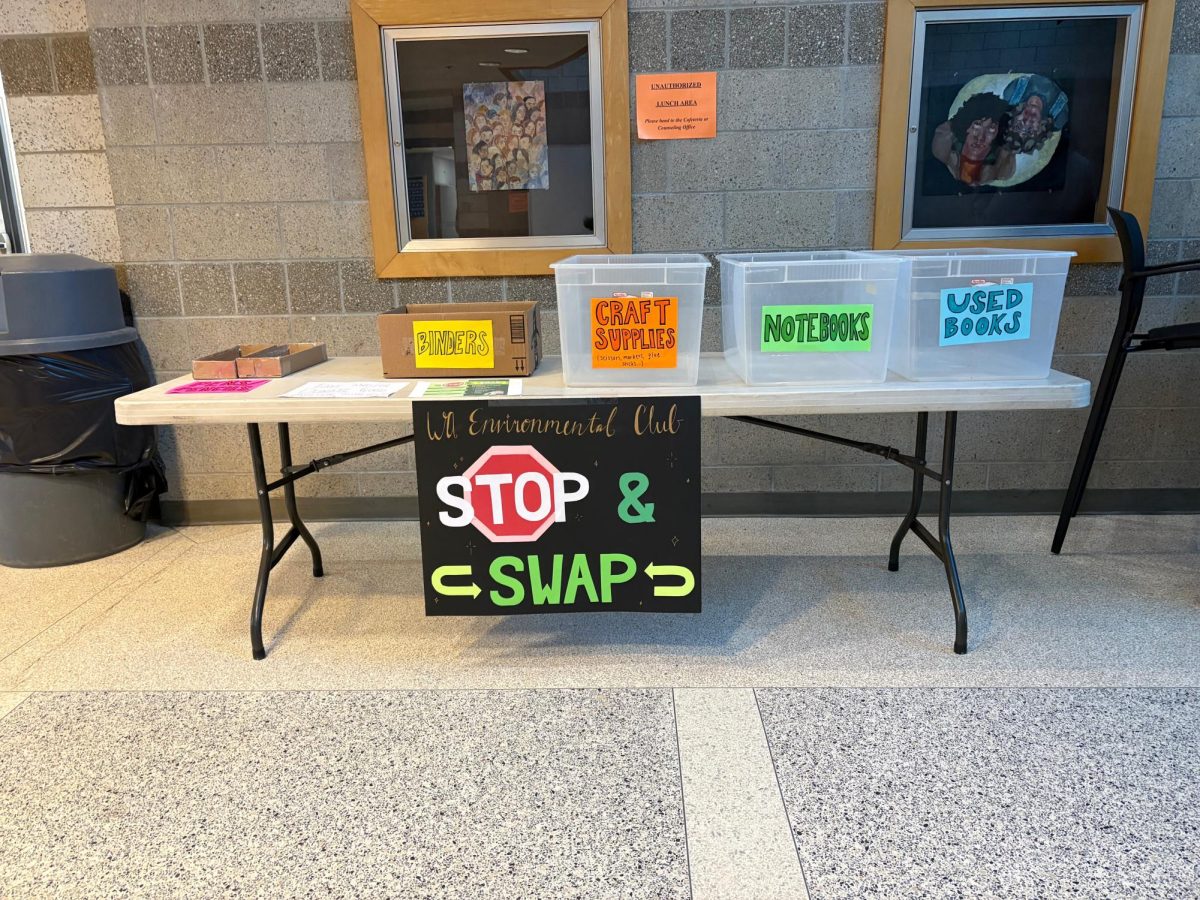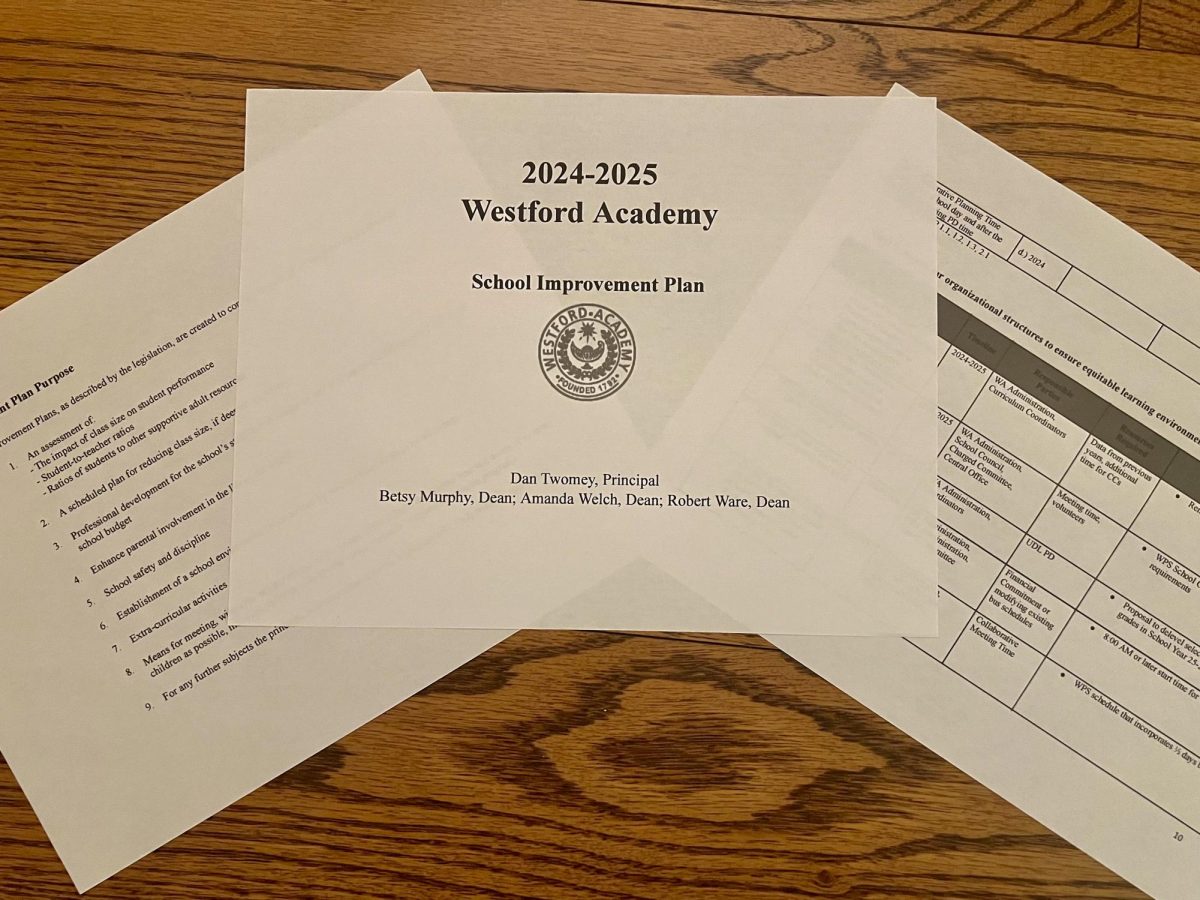 This article is an additional part of the recent three-part series on the upcoming teacher union negotiations. Part 1 summarizes previous negotiation talks and the paradox found between Westford’s recent accomplishments in the face of below average school statistics such as the per pupil expenditure. Part 2 discusses the teacher union’s point of view and their most pressing concerns for the talks. Part 3 deals with the role and opinions of Superintendent Bill Olsen in the talks.
This article is an additional part of the recent three-part series on the upcoming teacher union negotiations. Part 1 summarizes previous negotiation talks and the paradox found between Westford’s recent accomplishments in the face of below average school statistics such as the per pupil expenditure. Part 2 discusses the teacher union’s point of view and their most pressing concerns for the talks. Part 3 deals with the role and opinions of Superintendent Bill Olsen in the talks.
By Andy Dunn
Staff Writer
During the teacher union negotiations, the School Committee plays a vital role by representing the Westford taxpayers and the town of Westford overall.
School Committee Chairman David Keele leads the six other committee members in their goal of offering the union a contract that is “reasonable, acceptable, but also one the taxpayers can afford,” according to Keele.
As a longtime Westford resident who has three children in the school system, when Keele heard about Westford’s recent awards, including being ranked Boston Magazine‘s eighth best school system, he was “euphoric.”
He called it “wonderful” to know his children are now in what is being considered “a wonderful community outside the realm of Westford.”
On the statistics embedded in the rankings, Keele acknowledged the statistical reality that the per pupil expenditure is low in relation to comparable communities, and that it is statistically correct that Westford is, in some areas, below average in pay. He also added that in other areas Westford is competitive with those communities Westford is statistically compared to pay-wise.
On the sustainability of this current system, Keele states that “you cannot stay at the bottom and continue to have high levels of success.” He also agrees that “if you are going to have an outstanding school system you have to be willing to pay for it.”
While these viewpoints would appear to resonate fairly well between the School Committee and teacher union, there are areas of disconnect between the two sides that are reminiscent of the 2012 negotiations.
Superintendent Bill Olsen speaks of a “revolving door” he fears the school system has become, citing the departure of eleven staff members in the last two years. Keele approaches the issue of turnover with a different opinion. Keeping with Olsen’s analogy, Keele does not see the door spinning right now from a statistical perspective, and is not hearing that from the six other Committee members.
He notes that there is “always a concern of a revolving door” and is not alarmed by the recent turnover statistics. The turnover, according to Keele, “is not out of the realm of normal” in the mobile, portal-to-portal society we are currently in.
“The turnover that we are seeing is statistically not above or below normal,” says Keele. “I’m not seeing this massive turnover that [the teacher union] is describing.”
Keele also “completely disagrees” with the notion that there has been a slow deterioration in teacher quality over the past few years, citing the test scores and rankings of Westford as “indisputable evidence” that teacher quality is not going down.
Going back to the 2012 negotiations, Keele believes they occurred during “unprecedented economic times.” When asked about how the School Committee felt about the implementation of the work-to-rule policy the union enacted, in which all procedures followed contract rules explicitly, he said they “have the right to do that.”
The School Committee, according to Keele, “regrets that they did make that decision, as we believe it is more advantageous to continue talking without work-to-rule scenarios, but I don’t respect or disrespect any teacher and/or union for doing what they believe is appropriate during contested negotiations … It’s business.”
He also cited a “difference in opinion” in the language within the contract but also accredited the town manager and Board of Selectmen for being “creatively supportive of the school department under extraordinarily difficult times.” Due to the worldwide recession, everyone had to make concessions, according to Keele, and the Committee doesn’t have the ability to make that better.
One policy Keele has firmly held throughout last negotiations and will continue to hold during these upcoming talks is that “he doesn’t read the internet” on these negotiations. “In reality, the papers don’t know anything. There is an agreement between parties negotiating that they won’t talk to the press,” says Keele.
On the anonymity of the internet, Keele cites his father’s slogan that he stands by: “If you are at the table and not willing to speak up and speak your piece, not only do you not belong at the table, you don’t belong in the room … anyone who puts out information on an anonymous basis shouldn’t be in the room.”
One common misconception among students is the idea that the School Committee unilaterally decides the budget for the school system. This is simply not how it works.
The town manager and Board of Selectmen offer the Committee an amount they believe they can afford to give for the school system. The School Committee then deliberates and determines what it feels it needs for adequate budget funding. If the committee disagrees with the Board of Selectmen, then there is additional discussion between both boards.
Keele notes they have not received a “significant increase over 3.1%” in his six years on the Committee.
However, the School Committee does have the option to override the proposal and “take it to the taxpayer.” This would allow the taxpayer to decide if they want to raise their taxes to pay for the increase. Keele calls this “always a challenge” in the process.
Keele says “we haven’t really had a budget in the last six years that allowed us to enhance our school system.” Budget talks typically start up after the fall town meeting and the budget is decided in March during the spring town meeting.
On the student-teacher ratio at schools, the School Committee aims for 22:1 for elementary school and 23-25:1 in high school. Keele is aware of the bubble at Abbot where some classes are pushing 24:1 and says these issues are being addressed.
“I sit on a board with six other members that want to do the right thing for the children of the town of Westford, and by doing that, we know that we have to be able to present to the taxpayer a compensation package that we believe will be satisfactory to the teachers, and at the same time, continue to allow the schools to meet their high standards, and at the same time, be a responsible package to the taxpayers that every taxpayer will be proud of,” says Keele.
Overall, Keele hopes that in these upcoming negotiations “the parties can get to the point really quick. Brush aside personalities, sit down, and have a meeting of the minds. We can make it work if everyone puts a little something on the table.”






